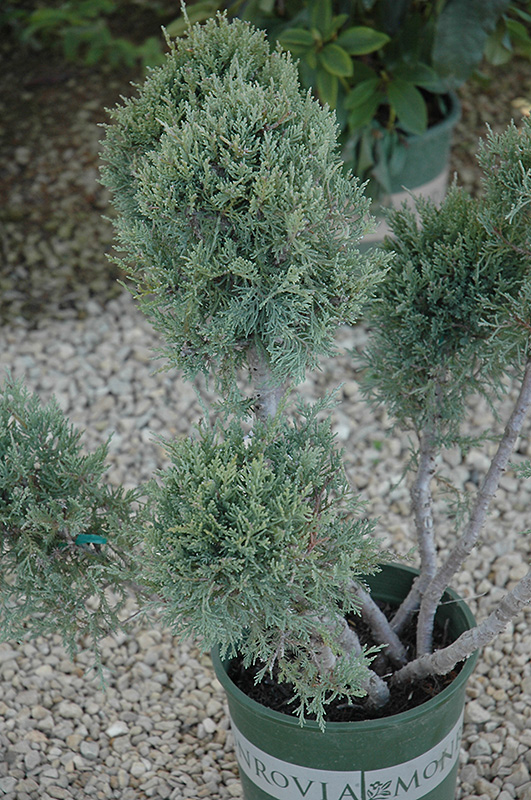Height: 10 feet
Spread: 8 feet
Sunlight:
![]()
Hardiness Zone: 4
Other Names: Hetzii Glauca
Description:
A fast-growing finely textured evergreen that is rather artistically upright; shaped into pom poms, soft blue-green foliage is very attractive and adds a geometrical element to the garden setting; ideal for many home landscaping applications
Ornamental Features
Hetz Blue Juniper (pom pom) has attractive bluish-green evergreen foliage on a plant with an upright spreading habit of growth. The scale-like sprays of foliage are highly ornamental and remain bluish-green throughout the winter. It produces silvery blue berries from mid summer to late winter.
Landscape Attributes
Hetz Blue Juniper (pom pom) is a multi-stemmed evergreen shrub with an upright spreading habit of growth. It lends an extremely fine and delicate texture to the landscape composition which can make it a great accent feature on this basis alone.
This is a high maintenance shrub that will require regular care and upkeep. When pruning is necessary, it is recommended to only trim back the new growth of the current season, other than to remove any dieback. Deer don't particularly care for this plant and will usually leave it alone in favor of tastier treats. It has no significant negative characteristics.
Hetz Blue Juniper (pom pom) is recommended for the following landscape applications;
- Accent
- General Garden Use
- Topiary
Planting & Growing
Hetz Blue Juniper (pom pom) will grow to be about 10 feet tall at maturity, with a spread of 8 feet. It has a low canopy with a typical clearance of 1 foot from the ground, and is suitable for planting under power lines. It grows at a medium rate, and under ideal conditions can be expected to live for 40 years or more.
This shrub should only be grown in full sunlight. It is very adaptable to both dry and moist growing conditions, but will not tolerate any standing water. It may require supplemental watering during periods of drought or extended heat. It is not particular as to soil type or pH. It is highly tolerant of urban pollution and will even thrive in inner city environments. This is a selected variety of a species not originally from North America.

